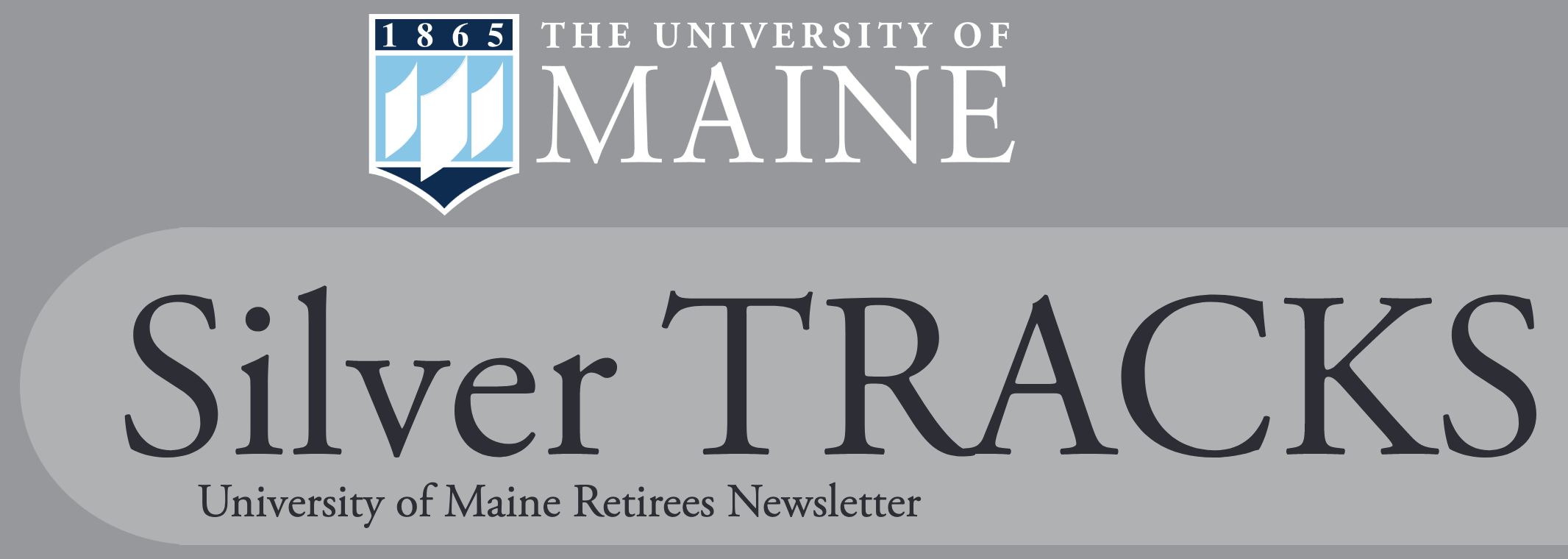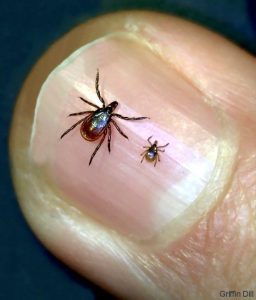
Silver Tracks Fall 2014
$8,000,000 Bond Referendum to Create Animal/Plant Disease & Insect Control Laboratory on Ballot this November
Question 2: Do you favor an $8,000,000 bond issue to support Maine agriculture, facilitate economic growth in natural resource based industries, and monitor human health threats related to ticks, mosquitoes, and bedbugs through the creation of an Animal and Plant Disease and Insect Control Laboratory administered by University of Maine Cooperative Extension?
Maine’s agricultural economy is the largest in New England. The numbers of farms and the acreage under production are increasing. The growth in the number of young farmers is over 40% in the past five years. Food production and processing is a growth sector of the Maine economy.
This lab will help protect Maine food producers and processors with monitoring, testing and education. Through the combination of agricultural, residential, and public health resources, a new lab will impact Maine citizens from all walks of life. The new lab’s unique combination of insect, plant, and animal diagnostics will provide an exceptional teaching opportunity for students, as well as premiere research and outreach facilities. The lab will actively support the work of many state agencies including the Department of Marine Resources, Inland Fisheries and Wildlife, Agriculture Conservation and Forestry, Health and Human Services and the Maine Center for Disease Control.

Photo from University of Maine Cooperative Extension
The expanding tick population and the resulting increase in the reported cases of Lyme disease and other serious illnesses is a prime example of the importance of this new laboratory. Presently, the Insect and Plant Disease Diagnostic Lab is now operating the only tick identification program in the entire state. The new lab would allow testing for Lyme and other disease causing organisms.
Just this year, the University of Maine Cooperative Extension became the new home of the state’s tick identification program. Portland’s Maine Medical Center, which handled the program for 25 years, eliminated the service last December due to funding deficits. UMaine Extension’s Insect and Plant Disease Diagnostic Lab, which identifies 3,000 plant, pest and insect species each year, expanded its services to compensate for Maine Medical Center’s cut by creating the Tick ID Lab, which began operation April 1.
The Animal/Plant Disease and Insect Control Laboratory will help:
- Support Maine agriculture
- Screen ticks for Lyme disease and other pathogens
- Facilitate economic growth in natural resource-based industries
- Monitor Maine’s moose herd for diseases and parasites
- Provide public outreach to help Maine citizens manage emerging pest issues
- Monitor and respond to invasive pest threats
If you are a Maine resident, a YES vote on Question 2 will support the new laboratory.
For Your Health
From Consumer Reports On Health Newsletter Volume 26 Number 4
Shingles Vaccine
A new study found that having had shingles can raise your risk of a heart attack or stroke. So if you haven’t gotten your vaccine, do it today.
New Self-test for Dementia
A 15-minute paper-and-pencil test might help detect early signs of cognitive decline. You can find the test at medicalcenter.osu.edu/patientcare (search “SAGE”).
Avoid Caramel Color in Foods and Drinks
Consumer Reports stated that caramel color used in many foods and drinks, from soy sauce to baked goods and many soft drinks might contain a potentially carcinogenic chemical called 4-MEL. Although Consumer Reports is not ready to make recommendations, they urge limiting consumption of products with “caramel color” or “artificial color.”
Before You Take Antibiotics, Ask These Questions
- Is it really necessary?
- Is it the right one?
- How long should you take it?
- What are the side effects?
When to Go Organic?
Organic foods as a rule cost more than conventional foods. Here is Consumer Reports take on which organic choices will provide the most immediate benefit from high to low:
- Fruits and Vegetables—High (Not treated with synthetic pesticides and fertilizers)
- Poultry—Medium to High (Do not have antibiotics)
- Beef—Medium to High (Not treated with antibiotics—also look for grass fed)
- Dairy—Medium to High (Not treated with growth hormones and has 60 % more heart-healthy omega-3 fatty acids.)
- Packaged food—Low to Medium (To avoid food additives and synthetic dyes, but remember a cookie is still a cookie)
- Seafood—Not applicable (No government approved organic standard for seafood.)
Three Retirees Join Council

Council vacancies were recently filled by John Alexander, vice president and provost emeritus and professor emeritus of civil engineering; Candace Jordan, senior development research analyst, University of Maine Development, and Marian Dressler, administrative assistant in the Department of Athletics.
There is a current opening on the Council for a retired faculty representative from the Maine Business School and in 2015 there will faculty positions open in the College of Liberal Arts and Sciences and Cooperative Extension.
First Recipient of University of Maine Retiree Scholarship Named

Hannah Chavis, granddaughter of retired faculty member in the College of Engineering George Elliott, was chosen by the Office of Financial Aid as the first recipient of the University of Maine Retirees Scholarship.
Hannah is a junior from Fairfield, Maine majoring in Nursing. Her goal is to become a registered nurse. Ultimately, she says she wants to become a home care nurse because she thinks they become the most personally engaged with the patient. Hannah is involved with the National Scholastic Collegiate Scholars and the Orono Student Nursing Association. She enjoys volunteering at the blood drives held on campus and working with her church.

Out and About
Volunteers and Friends of the Orono Bog Boardwalk have completed the first phase of fundraising for and replacement of the 508 sections of the boardwalk, which is located off Stillwater Avenue in Bangor, Maine. Under Phase I, the first 104 were constructed and installed along with new railings, interpretive stations and wheelchair turnouts. The sections are made of composite materials and will, thus, be longer lasting. Phase II fundraising is underway to complete the next 120 sections.
For more information about the bog boardwalk, visit the Orono Bog Boardwalk website.
The Orono Bog Boardwalk is fully wheelchair accessible and open to the public during daylight hours until early November.
The President’s Council of Retired Employees
Mission Statement
The Council will enhance communication between the University of Maine and the community of retired employees. The Council will encourage active involvement of retirees in the life of the University. The Council will provide advice to the University President on matters of importance to retirees.
Council
Harold “Brownie” Brown, Chair
John Alexander
Rosemary Bamford
August “Gus” DeSiervo
Marian Dressler
Candace Jordan
Gordon Kulberg
Mike Pullen
Judith Round
Devon Storman
The University of Maine does not discriminate on the grounds of race, color, religion, sex, sexual orientation, including transgender status and gender expression, national origin, citizenship status, age, disability, genetic information or veterans status in employment, education, and all other programs and activities. The following person has been designated to handle inquires regarding nondiscrimination policies: Director, Office of Equal Opportunity, 101 North Stevens Hall, 207.581.1226.
